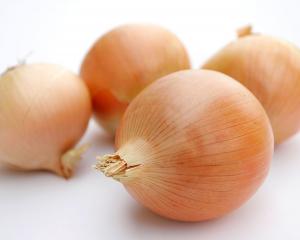
Despite news stories saying economic recovery is on the way, many people are finding it harder to manage.
Growing your own costs less than buying produce and because vegetables begin to deteriorate as soon as they are picked, losing vital chemicals in the process, there are health benefits as well.
A vegetable garden can cost a lot or a little.
Bring in the professionals, have them build sturdy edgings, walls and trellises (hard landscaping) and fill the beds with mushroom compost mixed with Superdirt and you will have a splendid garden that will take years to pay for itself, but will be very long-lasting.
At the other end of the scale, a garden dug by hand, using the turf cut from the bed or old timber to make edges, then filled with composted kitchen waste and manure bought from a roadside stall costs virtually nothing.
This option pays for itself in the first season through the savings made on the cost of buying vegetables but the structural elements may need replacing within a couple of years.
Even if you pay a lot for the hard landscaping, when you get the garden under way, it makes environmental sense to reuse or recycle everyday items.
Save these
Look ahead and keep costs down further by saving seeds and tubers to grow next year.
• Good vegetables to keep for next year's crops are:
• Potatoes Keep egg-sized tubers to sprout and grow.
• Jerusalem artichokes The ones with fewest knobs have smoother offspring.
• Oka (yams) Save thumb-sized tubers and put in the ground after frost danger is over.
• Garlic One or two heads, broken into cloves to grow, will produce enough garlic for an average household.
• Broad bean and pea seed is long-lasting, so can be kept for two years or more.
• Parsley Sow some in autumn when the seed heads are ripe and store some for spring sowing.
• Tomatoes Spread seed on paper, leave in a warm place and store when completely dry.Do not save seed from F1 hybrid varieties, such as the popular Sweet 100, as they will not grow true to type.
• Some supermarket vegetables, such as potatoes and oka, are treated to inhibit sprouting, so saving them for growing at home is not recommended. (You may be lucky but it could be a waste of effort.)
Share and save
Share seed with friends.
A packet of Utah celery seed ($3) has 250 seeds; Fordhook silverbeet 150 for $2 and Great Lakes lettuce has 1000 seeds for $2. If three people each buy a packet of different seed and divide it three ways, there will be enough for a season's sowing of these three vegetables for $2.33 a family. With short-lived seed, such as parsnips and parsley, sharing means excess seed is not wasted.
Cheapies
• Buy secondhand tools, which may be better made than modern cheapies.
• Horse or poultry manure - add blood and bone
• Make your own revolving compost bin with a 44-gallon drum. See internet for how to do it.
• Join a garden club, not only for the inexpensive plants members sell but also to learn how to garden better.Free things
Free things
• Old plastic mesh cutlery trays are excellent for sowing seeds, and they have ready-made divisions, so the cabbages don't get mixed up with the lettuces.
• Use 2lt ice cream containers to grow seedlings. Don't forget to put holes in the bottom for drainage.
• Pieces of Venetian blinds, plastic lids e.g. from ice cream containers, and pieces cut from margarine or yoghurt pottles make durable plant labels. Write on them with an indelible marker pen.
• Pantyhose strips can be used to tie plants without cutting into them.
• Old pill bottles with labels removed become airtight seed containers.
• Make your own compost. You don't need a proper bin, as a heap on the ground will work.
• Renovating your home or know someone who is? Save old window frames to cover tender plants.
• Scavenge in neighbourhood skips for bricks, flowerpots, pieces of netting wire. (Be a good neighbour - tell neighbours what you are doing.)Raid the kitchen and laundry. An old knife is a handy garden tool and laundry powder scoops are perfect for measuring lime and fertilisers.
• Scrounge pieces of someone else's perennial plants, such as rhubarb, horseradish and globe artichokes.
• Grow herbs from small rooted pieces. Rosemary, bay and lavender can be propagated from cuttings put in moist soil.











